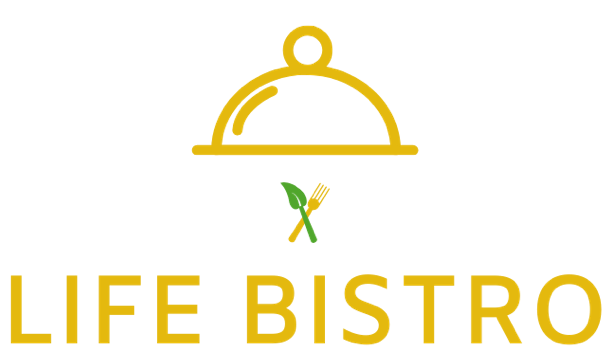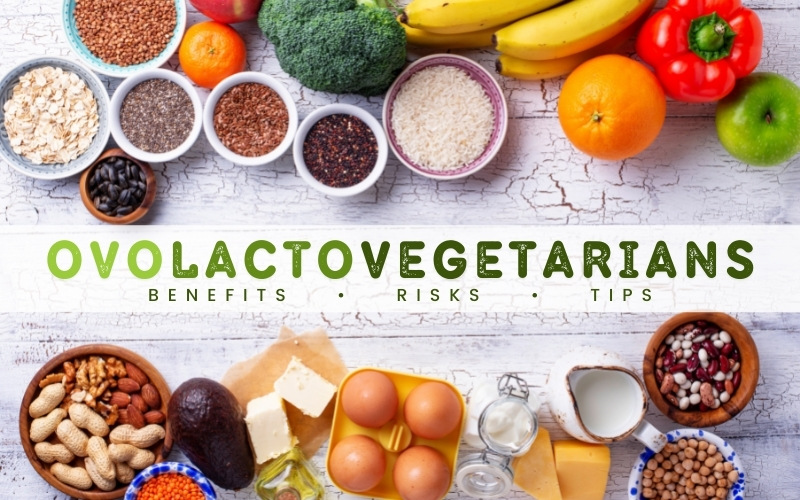Ovolactovegetarians sounds like just another fancy word to describe how you eat. However, it is more than just some fad or complicated collection of letters. It is a kind of vegetarianism with health and environmental reasons behind its main premise.
Vegetarianism comes on different levels. This all depends on your philosophy but also on your own unique body and its reactions to the kind of food you allow yourself to eat. You might require lots of protein which can affect your meal plan if you restrict yourself from all animal byproducts which are rich in protein. Another aspect to consider would be the kinds of food available in your area.
As such, vegetarianism as a social movement can vary for different people. You can still believe in practices that are sustainable for animals and the environment while also eating the food your body needs. In particular, this article will talk about what it means to be an ovolactovegetarian, the benefits, risks, and some tips for those considering the lifestyle.
What Does it Mean to Be an Ovolactovegetarian?
Ovolactovegetarians are a subcategory of vegetarians who do not eat fish, fowl, and red meat. But unlike vegans, they do consume animal byproducts such as eggs, milk, and honey. This is with the mindset that those kinds of foods are not acquired through maltreatment or killing of animals or insects for their production.
The name in itself can give you a hint at what they are allowed to eat. “Ovo” means “egg” in the dying Latin language. “Lacto” comes from the Latin word that means milk. Both words reference the kind of food they eat that differentiates them from other vegetarians. Although most still opt for primarily plant-based dishes and snacks, they also have the choice to eat dairy products and eggs.
In the West, this kind of subgroup is slowly rising. Evidence can be seen with new food establishments, food delivery services, cooking materials, and online recipes, and grocery products labeled for ovolactovegetarians.
The History Behind Ovo-Lacto-Vegetarianism
Vegetarianism on its own has been practiced for thousands of years. Religion plays a role in this regard seeing as Hinduism strongly promoted solely eating plant-based substances. In this modern age, 70% of the world’s active vegetarian population are Hindu, although, the religious believers for this faith might not be so quick to jump into ovolactovegetarians because it allows for the consumption of eggs.
On the other hand, Jews and Christians who approach vegetarianism choose from going vegan or going ovo-lacto-vegetarianism. Spiritual individuals are also attracted to the lifestyle due to the desire for proper treatment of animals for food.

[Also read 5 Foods That Lacto-Ovo Vegetarians Surprisingly Would Not Eat]
Health Benefits
Choosing to go ovolactovegetarian can be very good for your body, not only for the environment. Here are some advantages of shifting to this kind of vegetarian:
Good for your heart
Some types of meat, refined carbs, and fat have been linked for years to atherosclerosis. This is the accumulation of plaque in the arteries that help your heart function. Choosing not to partake in that next slab of pork belly could save you from the final steps to heart disease.
Furthermore, plant-based meals can lower your risk of contracting coronary
artery disease. Halting all trains to the animal food shop could aid in the smooth blood flow to your heart. Not only that, this can mitigate blood pressure as well as make for healthier blood vessels. All of these benefits sound like your heart will be doing pretty well while on this diet.
Promotes healthy weight loss
Want to shed some weight or maybe simply maintain a healthy one? Ovolactovegetarian meals can be a good means to remain at a steady healthy weight and support your weight loss.
Diets that would be available to you would usually have a low amount of total calories. They would also make you feel satiated due to the high fiber content. Studies reveal that vegetarian diets help you avoid obesity and the long-term effects of excess weight.
Lessened gallstone problems
Ovolactovegetarians also have a lesser chance of developing gallstone disease. This is an illness wherein rock-like pieces of bilirubin or cholesterol form in your gallbladder. These can bar your bile duct and cause pain.
Research conducted over 6 years among 4,839 people showed results that vegetarians have 3.8 times less of a risk of contracting gallstone problems. The conclusions could be due to the lowered cholesterol content of vegetarian food.
Possibly avoid developing type 2 diabetes
Plant-based diets can help lower your risk of type 2 diabetes due to the prominence of healthy food in the meals. Ingredients such as fruits, legumes, whole grains, vegetables, and nuts, mean less saturated and trans fats.
Could mean lower chances of getting cancer
Vegetarian diets have long been linked to lower chances of a variety of cancers. Studies discuss that your cancer risk can be significantly reduced by eating healthy food like vegetables and fruits, two of the kinds of foods eaten by ovolactovegetarians.
Risks
Any restriction you might have on yourself and the kinds of food you eat could have potential risks regarding nutritional deficiencies. In particular, you could be at risk of not getting enough protein in your diet.
In these cases, it might be good to consult your doctor about trying the Ovolactovegetarian lifestyle. Here are some questions you might want to ask your doctor:
- Do you know about the ovolactovegetarian diet? What are some risks I might be prone to?
- Would I need any dietary supplements if I adopt an ovolactovegetarian diet?
- What is your opinion of ovolactovegetarian diets? What kind of minerals or vitamins should I make sure to keep in my diet?
Additionally, some evidence shows that there could be a higher risk of breast cancer in women with lactose intolerance. This has been connected to the use of higher quantities of soy-based products instead of milk. Soybeans include phytoestrogens which are plant estrogens. This ingredient has been linked to breast cancer.
Other risks include possible delayed puberty in girls and maintenance of fertility in women in their baby-making years. In 2007, Harvard School of Public Health researchers shared that consuming low-fat dairy foods relates to infertility in women because of the inability to ovulate.

[Also read The Vegan Lowdown on Vitamin A: Myths and Food Sources]
Tips
To ensure you get all the nutrients you need here are some ways to include each of these nutrients in your diet:
Protein
You need protein to build and maintain the healthiness of your red blood cells and muscles.
Here are some foods you could incorporate into your diet:
- nuts, grains, and seeds
- eggs
- dairy products such as low-fat milk, yogurt, and cheese
- beans, lentils, and peas
- alternatives to meat like textured vegetable protein
Iron
Iron brings oxygen to the lungs and transfers it along with other areas in the body.
Here are some foods you could put in your grocery cart:
- citrus fruits like oranges and lemons
- sweet peppers
- broccoli
- green leafy vegetables
- prunes, raisins and apricots
- dark green vegetables such as okra and collards
Linolenic acid (aka omega-3 fat)
This can help you improve your heart, eye, and brain health. Here are some great additions to your meals:
- walnuts and soybeans
- flax seed
- canola oil
- tofu
Key Takeaways
Being an ovolactovegetarian means you get all the ethical value of plant-based food while still receiving nutrients from animal byproducts. As such, doing your research to make sure this lifestyle choice is the right one for you is key. Just don’t forget any nutrients and visit your doctor and you are ready to start your journey.


